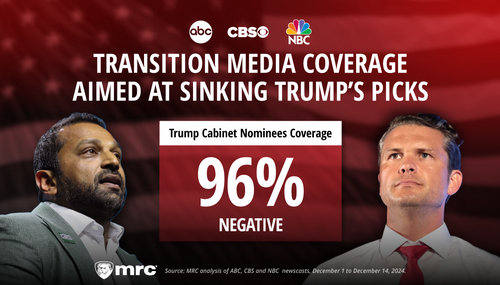On Wednesday, the Morning Joe crew erupted over the revelation that notes from Hillary Clinton’s interviews with the FBI are being given to a congressional committee for review. According to guest Adam Schiff, a Democratic Congressman from California who serves on the House Intelligence Committee, this “opens a Pandora’s box of requests from Congress.” Bloomberg Politics Editor, Mark Halperin, believes this is one of the “most horrible precedents” he’s seen in a long time.
Co-host Joe Scarborough reminded viewers that many Democrats are “rightly skeptical” that the information will remain secure, and Rep. Adam Schiff affirmed those fears.
REP. ADAM SCHIFF: Well I think, unfortunately, that's exactly right and the history of documents like this has been leaked almost immediately upon receipt by congress and I would be very surprised if that was different here and the broader concern, frankly, is what this will mean to the department of justice investigations and people's willingness to cooperate in the future. I also have to say that it opens a Pandora's box of requests from congress now…You could list probably easily a dozen or dozens of closed cases that congress would have a legitimate interest if this is now the precedent. And that concerns me greatly because I think it will deter people from cooperating in the Department of Justice investigations if they know they’re going to become public and part of political fodder.
Rep. Schiff went on to suggest that this will “deter” people from cooperating with DOJ investigations if they are at risk of becoming “public and part of political fodder.” It was equally difficult for Mark Halperin to find any ascertainable benefit from the notes being reviewed by congress. Halperin even pleaded with the congressman: Why did the FBI do this?
MARK HALPERIN: Congressman I totally agree with you I think this is one of the most horrible precedents I’ve seen in a long time. I don't understand why the FBI agreed to send the material over. Not just terms of deterring cooperation, but people's privacy, people's rights to not have accusations if they’ve not been indicted. Why did the FBI do this?
REP. ADAM SCHIFF: … But to go further than that and release investigative files and witness interviews and other documents, that seems to me unjustified and unwise. And I think it's a decision and a precedent the Justice Department will rue that it has set. Because I don't see a limiting principle here. And so whenever you have a party in the majority in congress now and someone from the other party under investigation and that investigation is ultimately declined, they're going to demand the same kind of access that we saw here.
It is very clear that liberals shudder at the thought of transparency when one of their own is in the spotlight. Ought not Democrats be celebrating that these notes will clear Clinton’s name? Perhaps they aren’t as confident as they pretend to be.
View Full Transcript Here:
08-17-16 MSNBC Morning Joe
07:48:03 AM – 07:50:50 AMJOE SCARBOROUGH: Notes from Hillary Clinton’s meeting with the FBI being given to a congressional committee to review. According to the Bureau, material from their July meeting contains classified and other sensitive contents. With its delivery comes a warning, "The expectation is it won't be disseminated or disclosed without FBI concurrence." Many Democrats are rightly skeptical that information will be, remain secure. Among them the ranking member of the House Intelligence Committee, congressman Adam Shift of California. Congressman, one person who said, why don't you go ahead and throw on the sidewalks outside the congressional buildings and just it will save time because they’re going to end up on the street anyways.
REP. ADAM SCHIFF: Well I think, unfortunately, that's exactly right and the history of documents like this has been leaked almost immediately upon receipt by congress and I would be very surprised if that was different here and the broader concern, frankly, is what this will mean to the department of justice investigations and people's willingness to cooperate in the future. I also have to say that it opens a Pandora's box of requests from congress now. Should, for example, the financial services committee demand the closed investigative files of any Wall Street executives not indicted after the meltdown. Don't we have equally as much right to those files as we do to these in the public interest. You could list probably easily a dozen or dozens of closed cases that congress would have a legitimate interest if this is now the precedent. And that concerns me greatly because I think it will deter people from cooperating in the department of justice investigations if they know they’re going to become public and part of political fodder.
SCARBOROUGH: Mark Halperin.
MARK HALPERIN: Congressman I totally agree with you I think this is one of the most horrible precedents I’ve seen in a long time. I don't understand why the FBI agreed to send the material over. Not just terms of deterring cooperation, but people's privacy, people's rights to not have accusations if they’ve not been indicted. Why did the FBI do this?
REP. ADAM SCHIFF: Well I think the director made the decision and I support him in this decision to speak publicly about the closure of the case when he did so a couple months ago. And then he testified, in fact, in great detail about that. It wasn't without reservation that I supported that, but I felt that the seminal public interest in the case involving the likely nominee or nominees of one of the parties justified it in these circumstances. But to go further than that and release investigative files and witness interviews and other documents, that seems to me unjustified and unwise. And I think it's a decision and a precedent the justice department will rue that it has set. Because I don't see a limiting principle here. And so whenever you have a party in the majority in congress now and someone from the other party under investigation and that investigation is ultimately declined, they're going to demand the same kind of access that we saw here.





